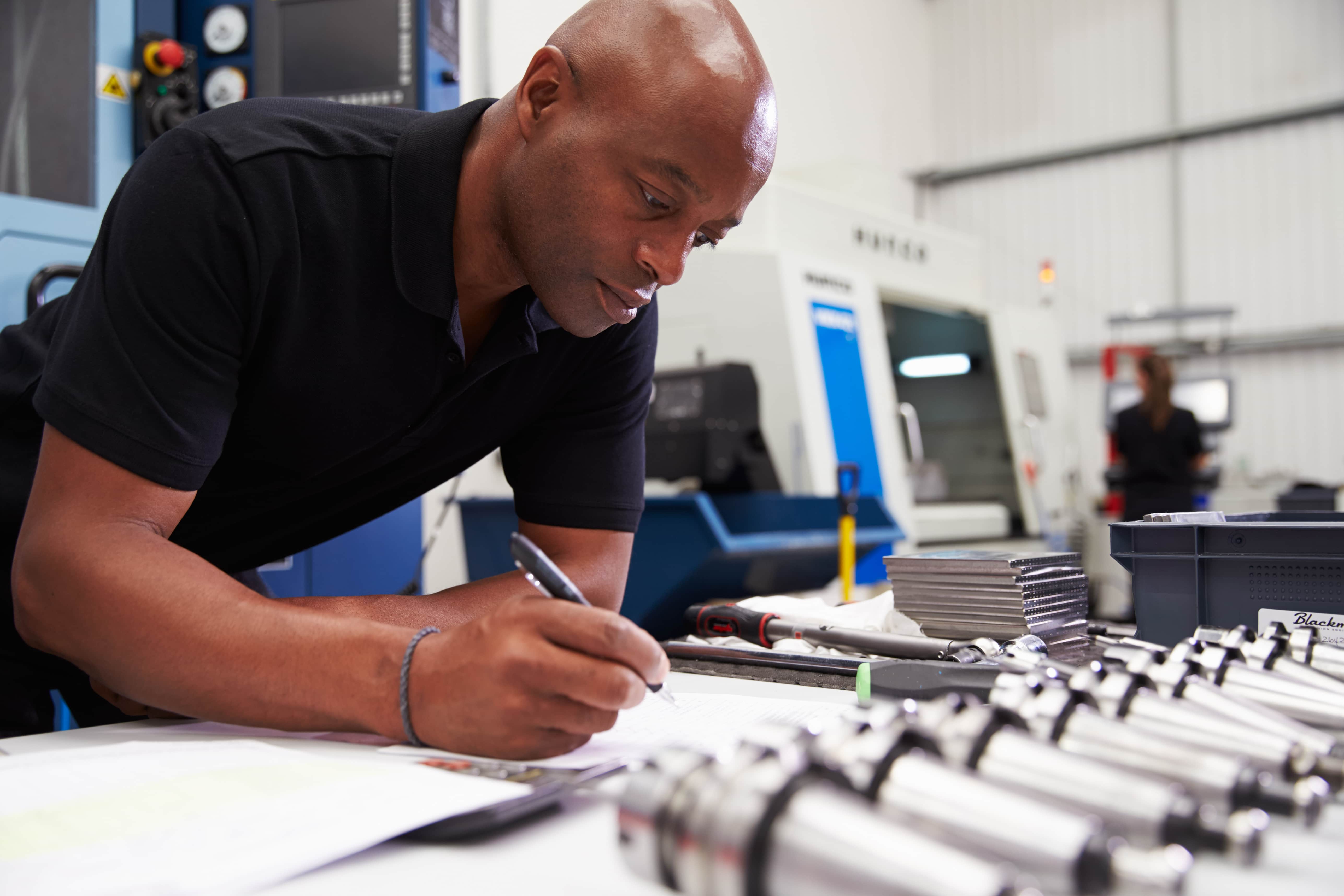Table of Contents
Have you ever wondered what it takes to be a CNC machinist? It’s a fascinating field that involves using computer-controlled machines to create precise parts and components for a variety of industries, from aerospace to automotive.
But how hard is it to become a CNC machinist? The answer might surprise you. While it does require a certain level of technical expertise and attention to detail, the rewards of working in this field can be substantial. In this article, we’ll take a closer look at what it takes to be a CNC machinist and what you can expect if you decide to pursue this career path. So, let’s get started!
How Hard is It to Be a CNC Machinist?
CNC machining is an important part of modern manufacturing. It involves using computer-controlled machines to create precise, complex parts for a variety of industries. One of the key roles in this process is that of the CNC machinist. But how hard is it to become a CNC machinist, and what does the job involve? Let’s take a closer look.
Education and Training
To become a CNC machinist, you will typically need to have a high school diploma or equivalent, as well as some additional training or education. This may involve completing a vocational or technical program in CNC machining or a related field, or completing an apprenticeship program.
During your training, you will learn how to use various computer-controlled machines, as well as how to read and interpret blueprints and technical drawings. You will also learn about safety procedures and quality control measures, which are critical in the manufacturing industry.
Skills and Abilities
In addition to formal education and training, CNC machinists need to have certain skills and abilities to excel in their role. These include:
Technical Skills: CNC machinists must be comfortable with using computer-controlled machines and other technical equipment. They must also be able to read and interpret technical drawings and schematics.
Mathematical Skills: CNC machinists need to have a strong foundation in math, including algebra, geometry, and trigonometry. This is important for making precise calculations and measurements.
Problem-Solving Skills: CNC machinists must be able to troubleshoot problems with machines and make adjustments as needed.
Job Responsibilities
As a CNC machinist, your job responsibilities will include:
Programming Machines: CNC machinists use computer software to program machines to produce parts according to specific technical drawings.
Operating Machines: Once a machine is programmed, the CNC machinist will operate the machine and monitor its progress, making adjustments as needed.
Quality Control: CNC machinists are responsible for ensuring that parts meet strict quality control standards. This may involve using measuring tools to check for accuracy and making adjustments to the machine as needed.
Benefits of Being a CNC Machinist
There are several benefits to working as a CNC machinist. These include:
Job Security: CNC machining is an important part of modern manufacturing, and there is a high demand for skilled machinists.
Variety: CNC machining involves working with a variety of different machines and materials, which can make the job interesting and challenging.
Earning Potential: CNC machinists can earn a good salary, particularly as they gain experience and expertise in the field.
Challenges of Being a CNC Machinist
While there are many benefits to being a CNC machinist, there are also some challenges to consider. These include:
Physical Demands: CNC machining can be physically demanding, particularly if you are standing for long periods or working with heavy materials.
Attention to Detail: CNC machinists need to be extremely detail-oriented, as even small mistakes can have a significant impact on the quality of the final product.
Stressful Deadlines: In some cases, CNC machinists may need to work under tight deadlines, which can be stressful and require a high level of focus and concentration.
CNC Machinist vs. Manual Machinist
One question that often comes up when discussing CNC machining is how it compares to manual machining. While both types of machining involve creating parts from raw materials, there are some key differences to consider.
Speed and Efficiency: CNC machines are typically faster and more efficient than manual machines, as they can produce parts more quickly and accurately.
Consistency and Accuracy: CNC machines are able to produce parts with a high level of consistency and accuracy, which can be difficult to achieve with manual machines.
Training and Education: Becoming a manual machinist typically requires more on-the-job training, while CNC machining often requires formal education or training in a technical program.
Conclusion
Becoming a CNC machinist can be challenging, but it can also be a rewarding career path for those who enjoy working with technology and precision. By gaining the necessary education, training, and skills, you can build a successful career in this important field.
Frequently Asked Questions
How Hard is It to Be a CNC Machinist?
Becoming a CNC machinist requires a high level of technical knowledge, attention to detail, and problem-solving skills. It is not an easy job, but it can be rewarding for those who enjoy working with their hands and creating precise parts. CNC machinists must be able to read blueprints, understand complex mathematical calculations, and operate computer-controlled machinery. They must also be familiar with a variety of cutting tools and materials and be able to make adjustments on the fly to ensure that parts are produced to specification.
CNC machinists must also be able to troubleshoot and diagnose problems with their equipment. This requires a deep understanding of the machinery and the ability to identify and fix issues quickly. Additionally, CNC machinists must be able to work under pressure and meet tight deadlines while maintaining a high level of accuracy and attention to detail.
What Skills are Required to Be a CNC Machinist?
To be a successful CNC machinist, you need a combination of technical knowledge and practical skills. You must have a strong understanding of math and geometry, as well as the ability to read and interpret technical drawings and blueprints. You also need to be familiar with computer software and hardware, including CAD/CAM programs and CNC machines.
In addition to technical skills, CNC machinists must have good communication skills and be able to work in a team environment. They must be able to follow instructions and pay close attention to detail to ensure that parts are produced to the correct specifications. Finally, CNC machinists must be able to troubleshoot and solve problems quickly to keep the production process running smoothly.
In conclusion, being a CNC machinist is not an easy job, but it is definitely worth it for those who have a passion for precision and detail. While it requires a significant amount of training and experience, the job outlook for CNC machinists is promising, with many opportunities for growth and advancement. With the right mindset and dedication, anyone can become a successful CNC machinist and contribute to the manufacturing industry.
Despite the challenges of the job, there are many rewards for those who pursue a career in CNC machining. CNC machinists play a critical role in producing high-quality, precise parts that are used in a wide range of industries, from aerospace to medical devices. They also have the satisfaction of knowing that they are using their skills to create something tangible and useful.
In conclusion, while it may be difficult to become a CNC machinist, the rewards are well worth the effort. Whether you are just starting out or have years of experience, there are many opportunities available in this exciting and growing field. So if you are looking for a challenging and rewarding career, consider becoming a CNC machinist and join the ranks of the highly skilled professionals who are shaping the future of manufacturing.
Request a quote today!
[contact-form-7 id="1578" title="Contact form"]
Please compress the file into a ZIP or RAR file before uploading. Alternatively, send through your RFQ by email.
enquires@unitymanufacture.com





